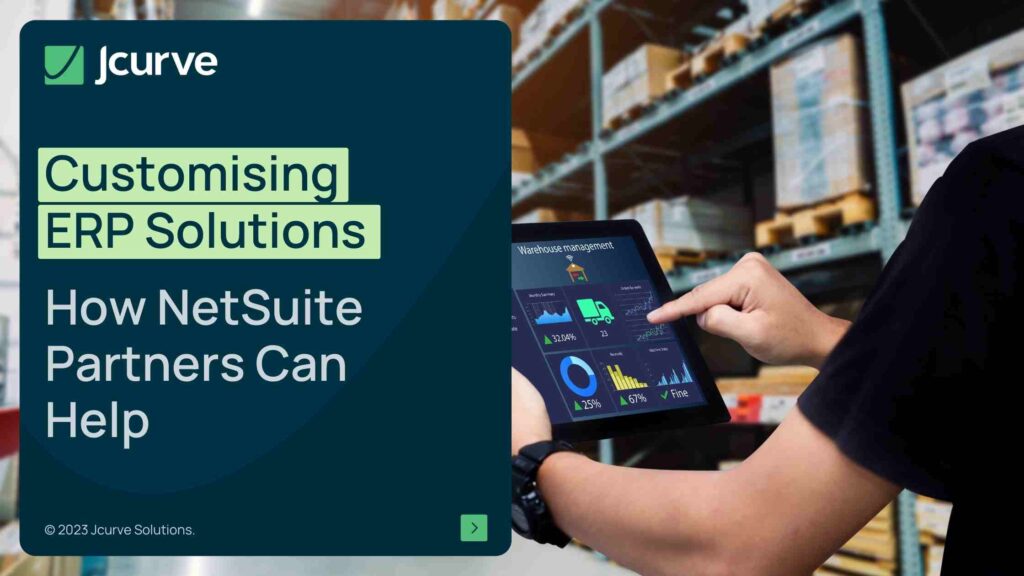In today’s dynamic business landscape, customisation plays a pivotal role in maximising the potential of ERP solutions. One of the leading providers of ERP software is Oracle NetSuite, renowned for its flexibility and scalability.
NetSuite’s customisable features, such as modifying forms, creating custom reports, and automating workflows, allow businesses to tailor their ERP system to meet specific operational needs.
NetSuite partners assist in tailoring the user interface, creating personalised dashboards, reports, and analytics that provide actionable insights. They enable seamless integration with other business-critical applications, enabling a unified view of data and streamlined workflows. With such partners, businesses can unleash the full potential of their ERP system, driving operational efficiency and strategic decision-making.
Omnichannel Strategy Implementation
Implementing a successful omnichannel strategy with a NetSuite Partner is beneficial. These partners can customise NetSuite to enable seamless integration across channels, centralise inventory management, and enhance customer experience. By partnering with a reputable NetSuite partner, organisations ensure their ERP system is optimised to support their omnichannel goals and processes.
The Benefits of NetSuite Partner Assistance
NetSuite partners are experienced professionals who possess in-depth knowledge of NetSuite’s capabilities. Collaborating with these partners can significantly enhance the customisation journey. NetSuite partners bring valuable expertise, best practices, and industry insights to the table, ensuring that businesses make the most of their NetSuite investment. By leveraging their assistance, organisations can achieve more efficient and effective customisations, aligning their ERP system with their specific goals and processes.
The NetSuite Customisation Process
Successful NetSuite customisation follows a well-defined process that ensures the tailored ERP solution meets the unique requirements of the business. This process encompasses several stages, including understanding business requirements, analysing existing processes, developing a customisation plan, implementing the customisations, and providing ongoing support and maintenance.
- Understanding Business Requirements: The process begins by gaining a deep understanding of the business’s needs and goals. NetSuite partners collaborate closely with business stakeholders to identify areas that require customisation. This involves conducting thorough discussions, interviews, and workshops to gather comprehensive information about the organisation’s processes, workflows, and pain points.
- Analysing Existing Processes: In this stage, the current processes and workflows within the organisation are examined in detail. NetSuite partners conduct a comprehensive analysis to identify areas of improvement and optimisation. By understanding how the existing processes can be aligned with NetSuite’s capabilities, they can propose effective customisation solutions.
- Developing a Customisation Plan: Once the requirements and areas for customisation are identified, a detailed plan is developed. This plan outlines the scope, objectives, and timelines of the customisation project. They collaborate with the business stakeholders to define the specific customisations needed, such as modifying forms and fields, creating custom reports and dashboards, or automating workflows. The plan also includes a thorough assessment of potential risks and mitigation strategies.
- Implementing Customisations: During the development stage, NetSuite partners leverage their expertise to create tailored solutions. This may involve configuring workflows, creating custom fields, or integrating third-party applications to extend NetSuite’s functionality. Rigorous testing and quality assurance processes are employed to ensure the customisations seamlessly integrate within the ERP ecosystem and meet the desired business outcomes.
- Addressing Potential Concerns: Throughout the customisation process, it’s important to acknowledge and address potential concerns or challenges. This includes identifying common pitfalls, mitigating risks, and providing tips for effective change management and user adoption. Clear communication, training, and support are crucial to ensuring a smooth transition and minimising any disruptions to business operations.
- Ongoing Support and Maintenance: After the customisations are successfully implemented into the production environment, NetSuite partners continue to provide guidance, support, and maintenance. This includes addressing any issues that arise, accommodating future customisation needs, and ensuring the ERP system remains optimised as the business evolves.
Real-World Examples
NetSuite’s flexibility allows businesses to adapt the ERP system to their specific industry requirements. For instance, retailers can customise NetSuite to manage complex inventory scenarios, implement specialised pricing structures, and integrate e-commerce platforms.
Similarly, manufacturers can optimise NetSuite to streamline their production processes, manage bill of materials, and facilitate supply chain collaboration. These industry-specific customisations empower businesses to leverage NetSuite’s capabilities to their fullest extent.
One such example is Emma & Tom’s, a company that was struggling under the volume of transactions and inadequate inventory management as they aimed to expand internationally.
They decided they needed an integrated system that could grow with their ambitions.
Collaborating with Jcurve Solutions, they customised the NetSuite software to create a scalable solution that supported their international expansion plans, improved inventory management and provided better visibility into their operations. With the customised NetSuite ERP, Emma & Tom’s achieved improved efficiency and were able to effectively manage their growing business on a global scale.
Choosing and Collaborating with NetSuite Partners
Selecting the right NetSuite partner is critical to the success of ERP customisation projects. Businesses should consider factors such as partner expertise, certifications, and industry experience. By partnering with a reputable NetSuite partner, organisations gain access to a pool of skilled professionals who can understand their unique requirements and provide tailored solutions.
Moreover, effective collaboration and communication with the partner throughout the customisation process ensure a mutually beneficial relationship and long-term success.
Overall, customisation plays a crucial role in optimising ERP solutions, and NetSuite partners are instrumental in this journey. They bring expertise and industry insights, enhancing the customisation journey and helping businesses make the most of their NetSuite investment.










